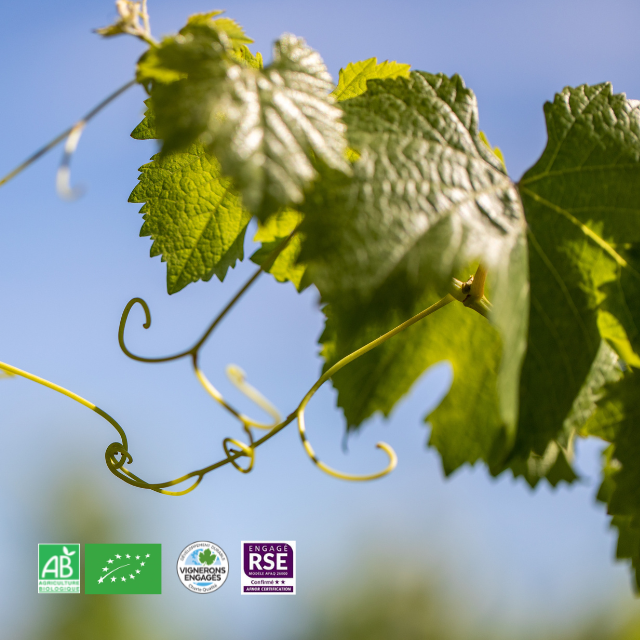
Château Sainte Roseline's social responsibility is particularly evident in the vineyard. The estate has advocated sustainable viticulture for many years and is committed to respecting the environment through indicators relating to biodiversity, phytosanitary strategy, fertilization and irrigation management. After 3 years of conversion, the estate was awarded the Organic Agriculture label in August 2022. Cultivation practices and winemaking methods are officially recognized as organic and comply with European specifications. The first Château Sainte Roseline "Agriculture Biologique" vintages will be released with the 2022 vintage.
Aurélie Bertin's conviction, shared by her teams, has always been to preserve the environment as much as possible and to offer quality products and services.
Sustainable development at the heart of our commitments
A pioneer in this CSR approach, Château Sainte Roseline has chosen to place sustainable development at the heart of its commitments. In each of its actions, it takes into account environmental, economic and societal impacts, from the vineyard to the bottle: from the eco-design of products to the preservation of biodiversity and the site's historical heritage, not forgetting the well-being of its employees...
The Vignerons Engagés label
All the actions undertaken over the last few years have been rewarded. Since April 2021, the estate has been awarded the Vignerons Engagés label, the wine industry's 1st CSR label, and certified ISO 26000 level "confirmed" by AFNOR. For companies committed to operating in a socially responsible way, ISO 26000 is a must.
The Vignerons Engagés label is the only comprehensive and balanced sustainable development approach dedicated to the wine world.
Numerous actions are carried out on a daily basis:
- Environmentally-friendly growing practices using techniques that preserve soil quality: use of biocontrol products, mechanical weeding only, controlled grassing under the rows.
- Preserve biodiversity: respect for ecological corridors and protection of protected species
- Preserving historical heritage: maintenance of the Site, financial support for the Chapelle communale Sainte Roseline
- Saving resources and managing waste
- Employee well-being: organization of team-building days, implementation of a training plan, organization of internal events, refurbishment of the break room...
- Continued eco-design of products: lighter bottles, use of recycled paper, optimization of dry materials, etc.
- The importance of parity: we are observing the feminization of the vineyard. For example, team leaders are now women who have been in the vineyard for a long time and have taken on greater responsibilities.

